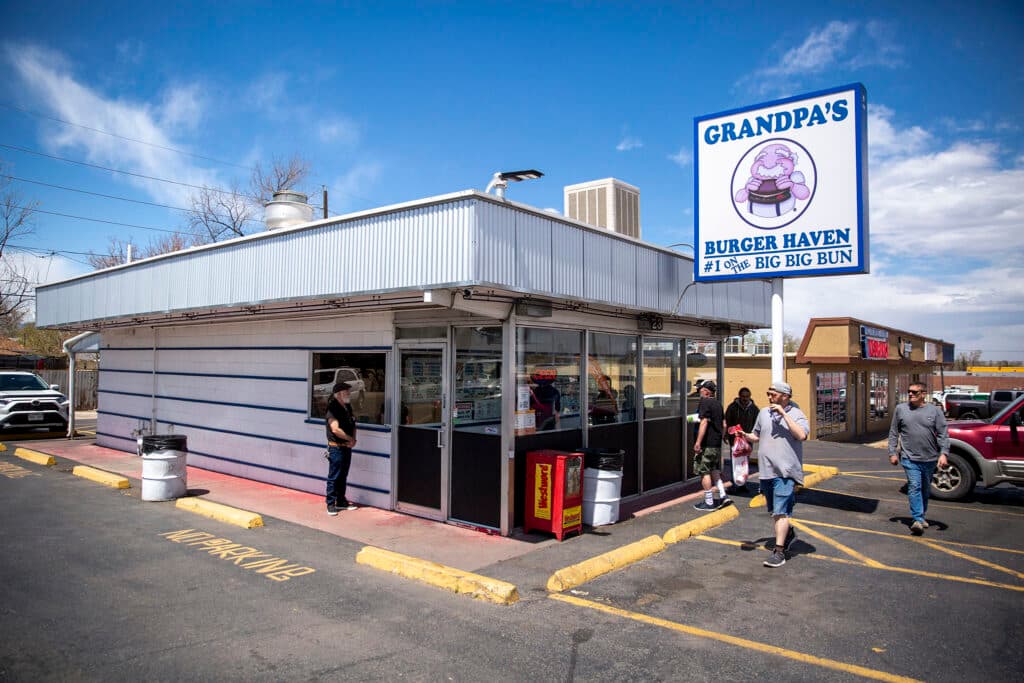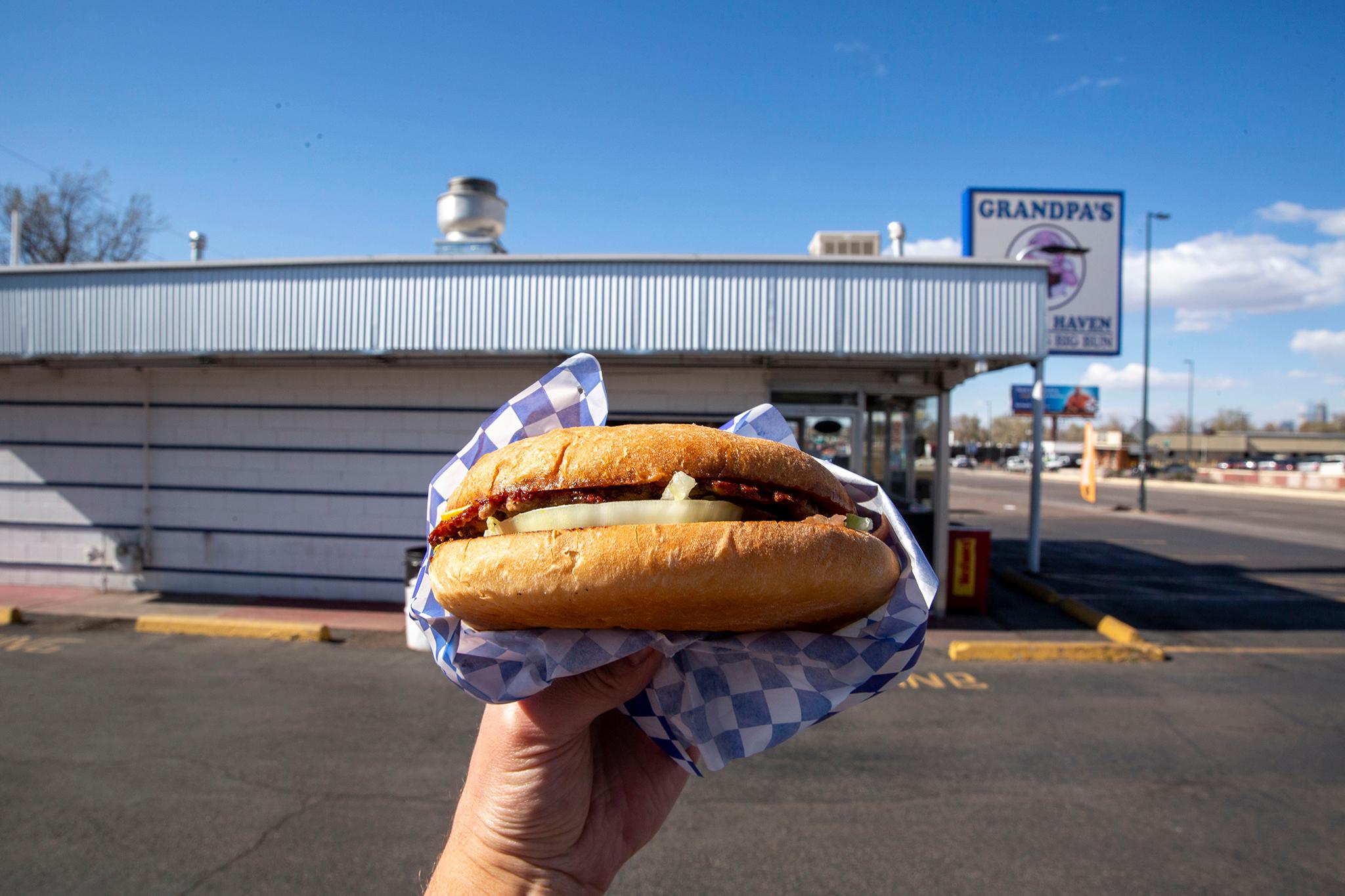Grandpa’s Burger Haven, the legendary Federal Boulevard hamburger joint, is changing owners.
Randy Goddard, whose family has owned the burger stand since it was Jim’s Burger Haven in the early 1960s, is ready to retire after 35 years. In fact, he has been ready for a few years, but he has been waiting for the perfect buyer. Westword first reported the change in ownership.
He would only sell sell to someone willing to keep the Burger Haven tradition alive.
“I could have sold it a couple of times, but, you know, we’ve got enough taco shops on Federal,” he said. The next owner, who hasn’t yet been identified, plans to keep the same workers, recipes and building, according to Goddard.
But there’s one thing that might change: the prices. And that goes to a trend that we’re noticing lately. Restaurant owners say it’s getting too hard to serve affordable food.
“Nobody wants to pay $20 for a hamburger,” Goddard said.
Just last week, Steve Ballas told us nearly the same thing about closing Steve’s Snappin’ Dogs: “People will pay $20 for a vodka drink, but will they pay $20 for a hot dog? No.”
Both Goddard and Ballas are also retiring for personal reasons, too.
The new owners of both Grandpa’s and Steve’s plan to keep selling at least some of the same food. We’ll let you know what happens to the prices later.

Grandpa’s Burger Haven is a survivor.
The restaurant stayed in the family through divorces, disputes and a major construction project on Federal Boulevard.
A hotspot for late-night cruisers, the stand has endured multiple noise complaints from new neighbors frustrated by the blasting music and engines. Some newer neighbors even griped about the sound of workers calling out order numbers over microphones.

Still, during the pandemic, Grandpa’s fared better than many restaurants. As a stand, it had no indoor dining to begin with. And it became a new hotspot for friends to rendezvous over beer-battered onion rings, face-sized hamburgers and milkshakes.
Through the years, as other restaurants have dished out frozen, processed meat, Goddard has kept things fresh — from veggies to buns.
Even so, he has not raised prices since the pandemic, and that’s strained the restaurant’s finances.
In May 2022, Goddard listed the business for more than $1.5 million. How much did he ultimately sell for?
“I’d rather not disclose that,” Goddard told Denverite.

Operating a small business has become prohibitively expensive in Denver, Goddard says.
Denver has been raising its minimum wage steadily for years, from $12.85 per hour in 2020 to $18.29 per hour in 2024. And it's going to rise to $18.81 on Jan. 1.
Goddard supports the spirit of raising the minimum wage. After all, life in Denver is prohibitively expensive for working people. But the numbers haven’t worked for him, he said.
“It's hard to find an employee and pay them $20 an hour when they have a $10-an-hour work ethic,” he said.
Paying into the state's new paid family leave program frustrates him, too. Most of his workers have been at Grandpa’s for years and are past child-rearing age.

Supporters of policies like paid family leave and a higher minimum wage argue that they are critical for helping workers survive and live with dignity in an increasingly expensive city.
Rising property taxes have also cut into Goddard's profits, as have rising costs for meat, vegetables and napkins.
“A person works all their time like this, and then turns around and gives the government most of the money,” he says.

Goddard wishes the City of Denver would do more to support small businesses, such as with breaks on property taxes and other expenses.
But he knows he can't do much to change that.
“Rather than hope I can fight it, I'm just going to sell and try and enjoy my life," he said.
Goddard looks back with gratitude at his workers. He’s happy they’ll still have a job under the new owner.
And he’s proud to have served hamburgers to the same neighbors for decades. Some of his customers, now retired, can remember standing on their tiptoes to look over the counter.
What’s next for Goddard? Water skiing.
Now in his 60s, he’s planning to have fun while his body’s still up for it.
“I'm still young enough now where I could still … go water skiing,” he said. “If I want to go snow skiing or something, I could do it.”
As he sees it, all that’s now a better use of his time than struggling to keep a legacy business going.
“A small business doesn't really stand a chance out here anymore,” he said. “If you're not a giant corporation, then they don't care. You know, it’s small businesses like mine that built this country.”













